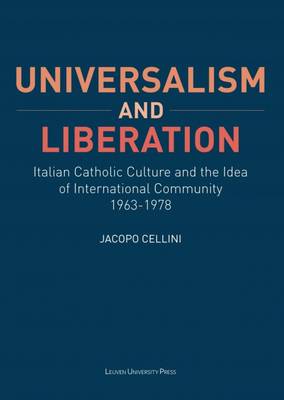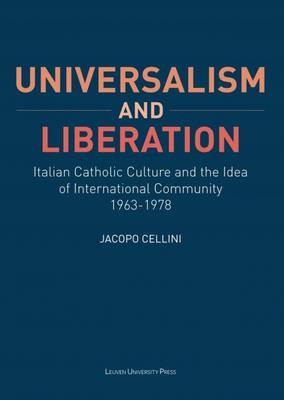
- Afhalen na 1 uur in een winkel met voorraad
- Gratis thuislevering in België vanaf € 30
- Ruim aanbod met 7 miljoen producten
- Afhalen na 1 uur in een winkel met voorraad
- Gratis thuislevering in België vanaf € 30
- Ruim aanbod met 7 miljoen producten
Universalism and Liberation
Italian Catholic Culture and the Idea of International Community, 1963-1978
Jacopo CelliniOmschrijving
After decades of a problematic, if not plainly hostile, approach to modernity by Catholic culture, the 1960s marked the beginning of a new era. As the Church employed a more positive approach to the world, voices in the Catholic milieu embraced a radical perspective, channeling the need for social justice for the poor and the oppressed. The alternative and complementary world views of 'universalism' and 'liberation' would drive the engagement of Catholics for generations to come, shaping the idea of international community in Catholic culture. Because of its traditional connection with the papacy and because of its prominent role in the map of European progressive Catholicism, Italy stands out as an ideal case study to follow these dynamics. By locating the Italian scenario in a broader geographical frame, Universalism and Liberation offers a new vantage point from which to investigate the social and political relevance of religion in an age of crisis.
Specificaties
Betrokkenen
- Auteur(s):
- Uitgeverij:
Inhoud
- Aantal bladzijden:
- 336
- Taal:
- Engels
- Reeks:
Eigenschappen
- Productcode (EAN):
- 9789462701083
- Verschijningsdatum:
- 15/11/2017
- Uitvoering:
- Paperback
- Formaat:
- Trade paperback (VS)
- Afmetingen:
- 176 mm x 232 mm
- Gewicht:
- 530 g

Alleen bij Standaard Boekhandel
Beoordelingen
We publiceren alleen reviews die voldoen aan de voorwaarden voor reviews. Bekijk onze voorwaarden voor reviews.











